Alphabet understanding Alphabet Worksheets for Ages 4-8
11 filtered results
-
From - To
Unlock your child's literacy potential with our engaging Alphabet Understanding Worksheets, tailored for ages 4-8! These fun and colorful worksheets guide kids to recognize, read, and write their ABCs with confidence. Each worksheet is thoughtfully designed to build essential skills like letter identification, phonics, and handwriting. Through playful activities and visual aids, children will develop a solid foundation in alphabet understanding, essential for early reading success. Perfect for parents and teachers, our printable worksheets make learning enjoyable and effective. Start exploring and help your child fall in love with the world of letters today!
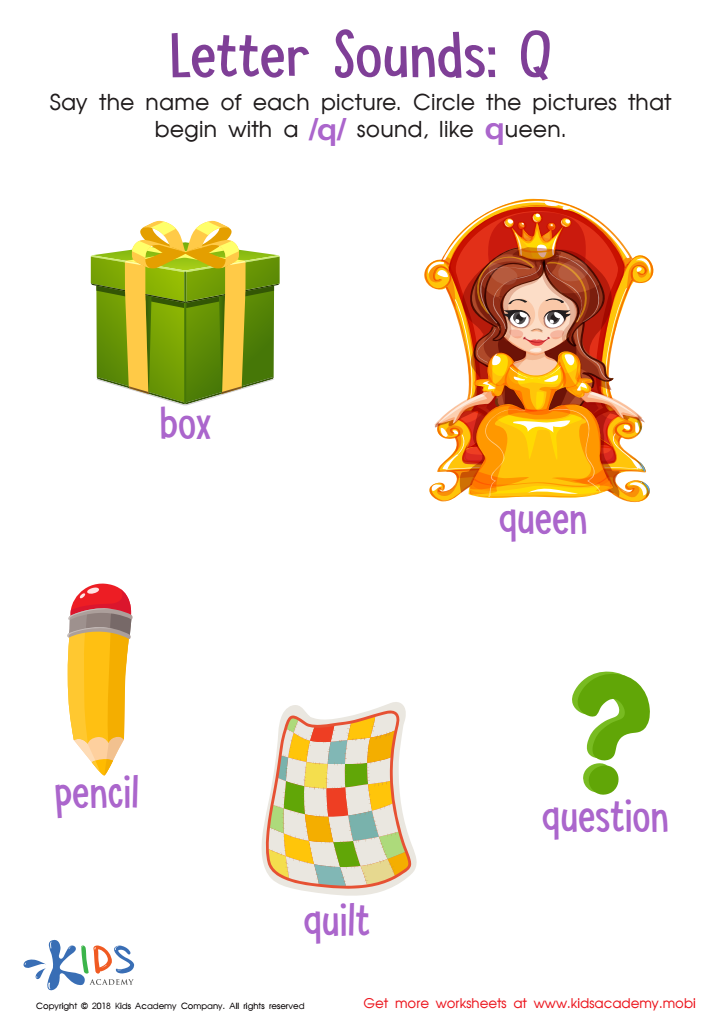

Letter Q Sounds Worksheet


Letter X Tracing Page
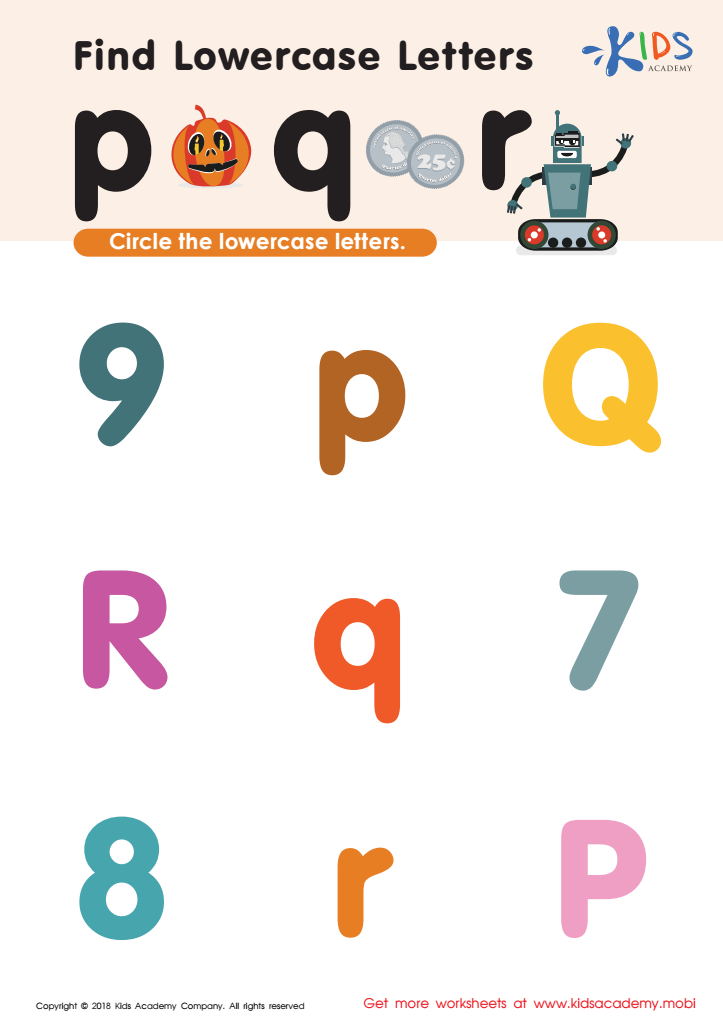

Find lowercase Letters p q r Worksheet
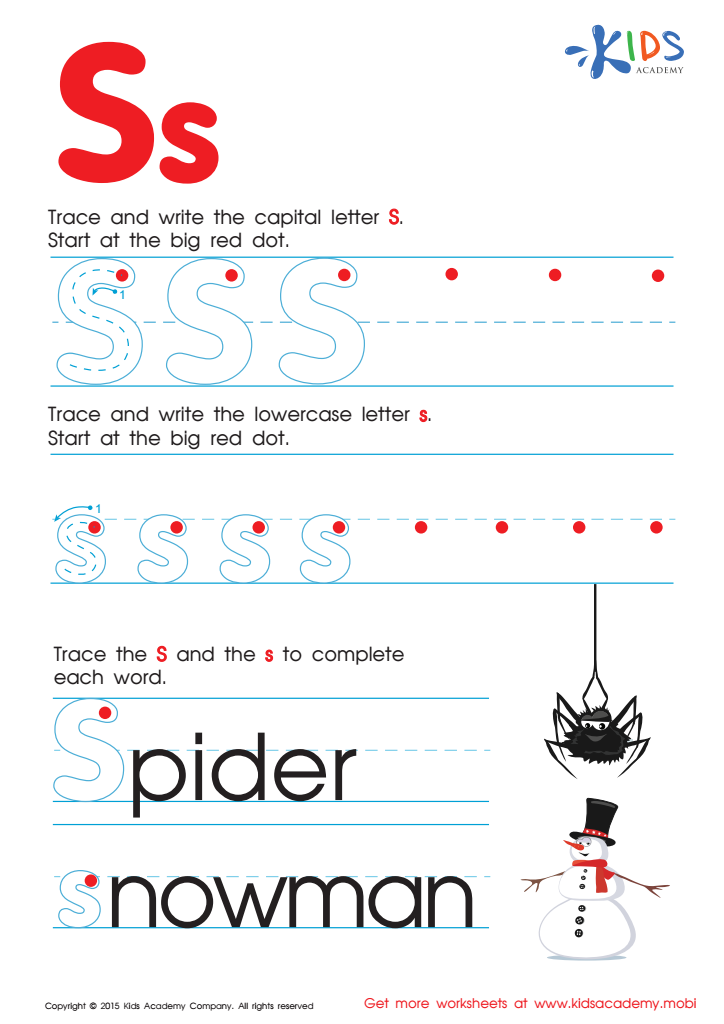

Letter S Tracing Page
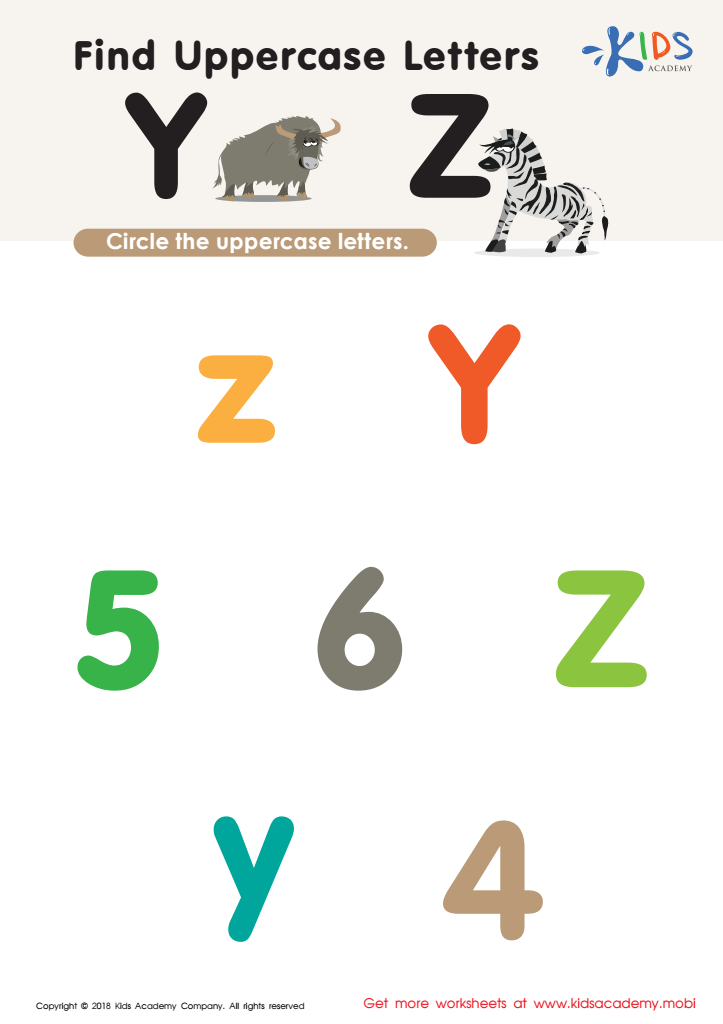

Find Uppercase Letters Y Z Worksheet
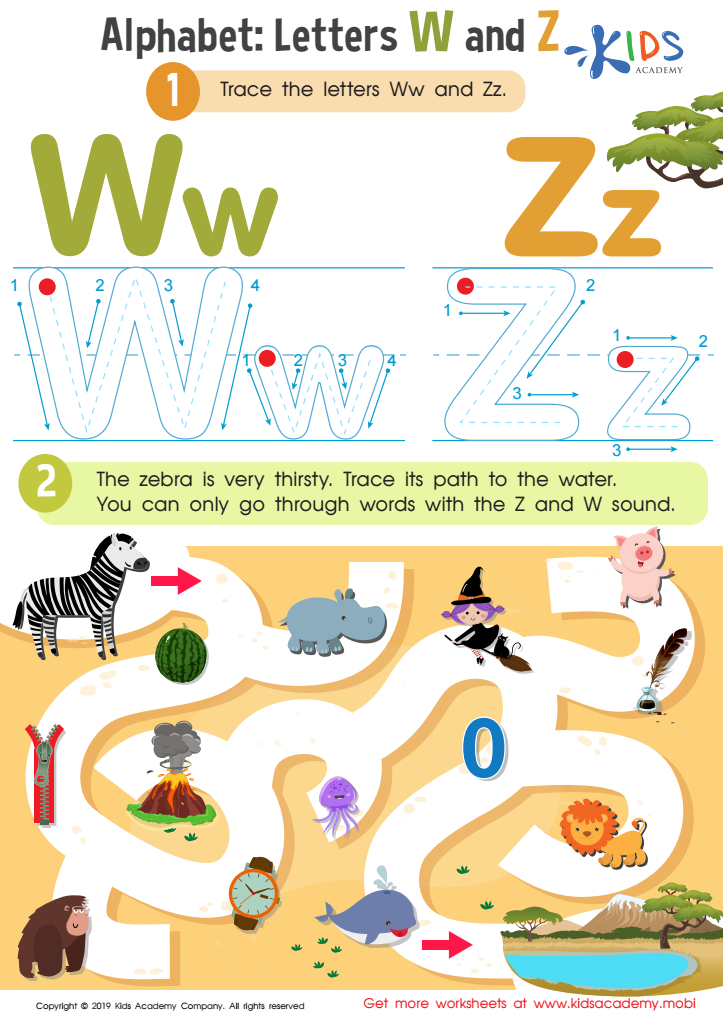

Letters W and Z Tracing Worksheet
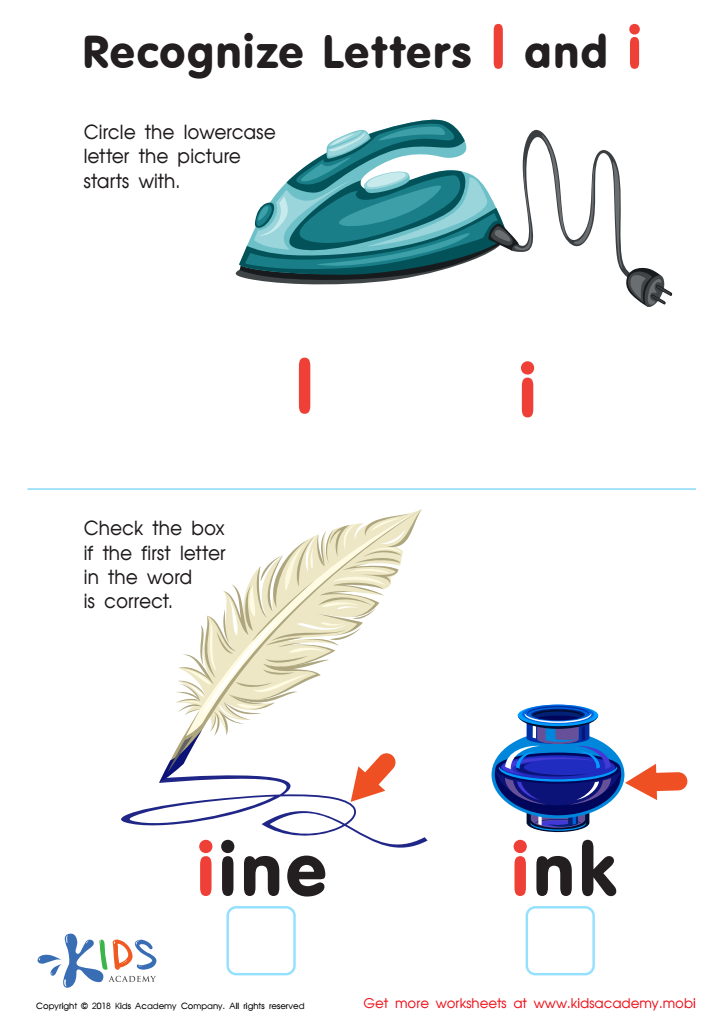

Recognize Letters l and i Worksheet
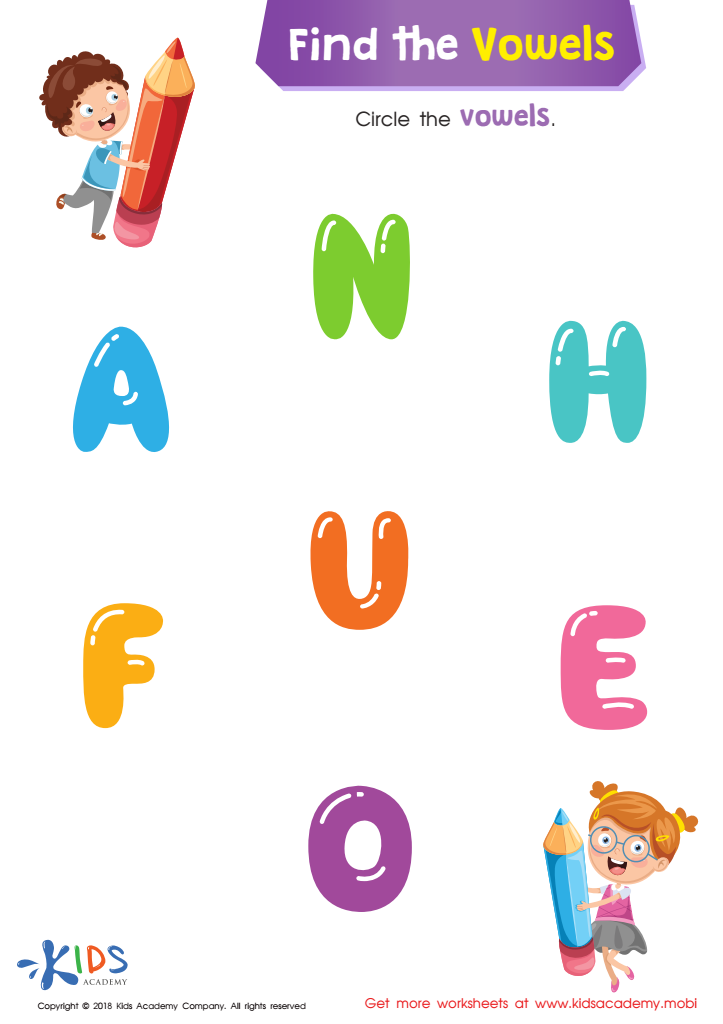

Find the Vowels Reading Worksheet
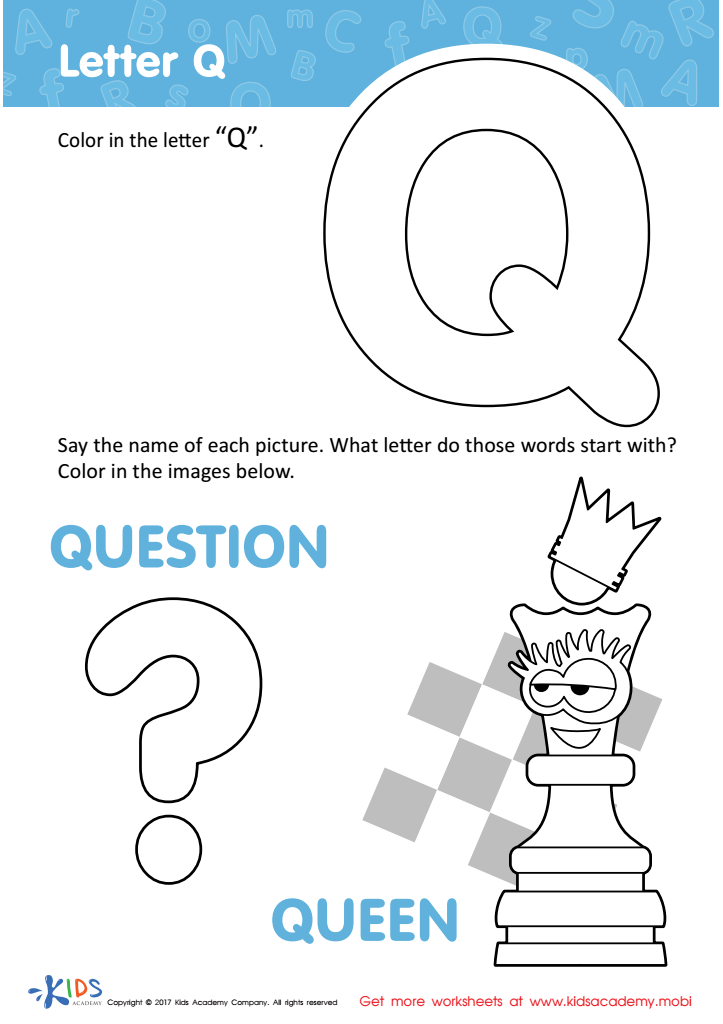

Letter Q Coloring Sheet
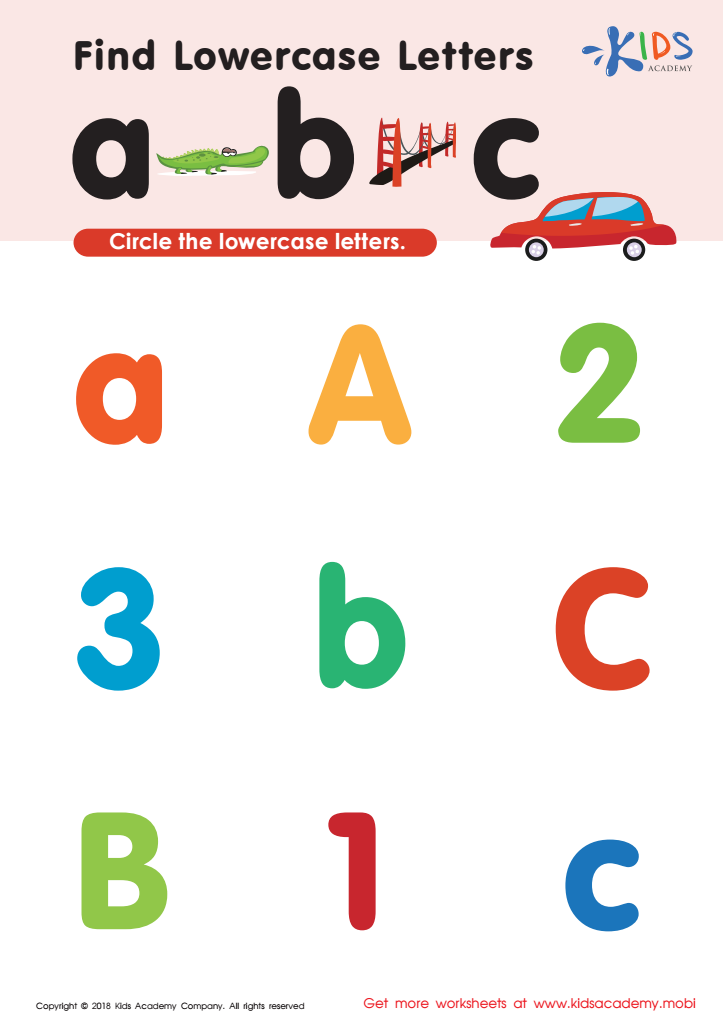

Find lowercase letters a b c Worksheet
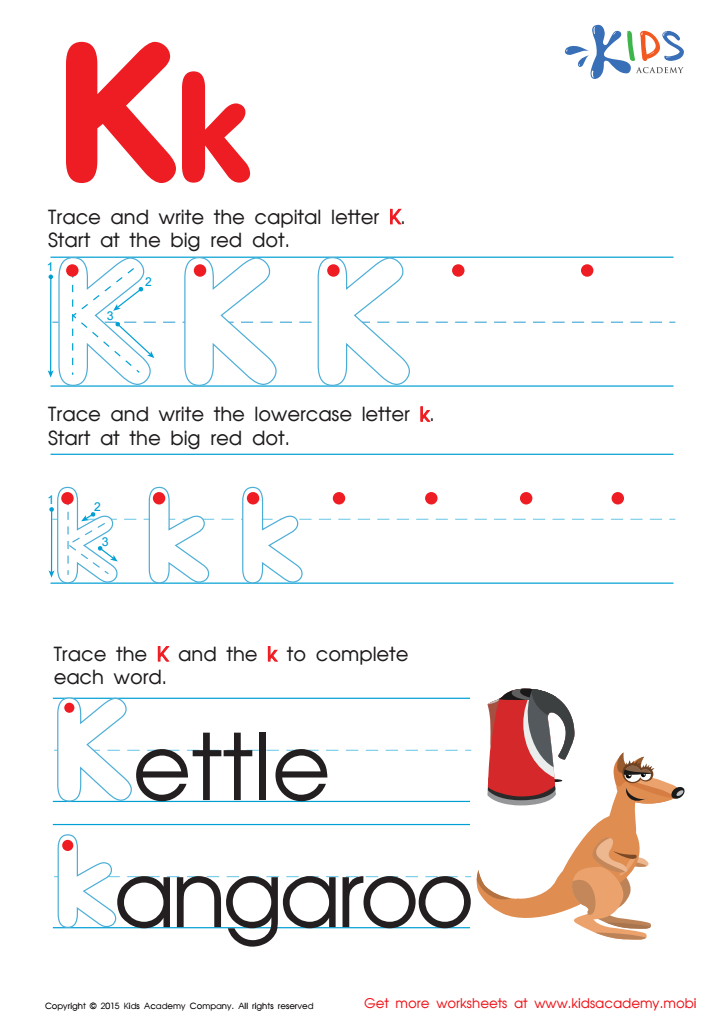

Letter K Tracing Page
Understanding the alphabet is crucial for children aged 4-8 as it lays the foundation for their literacy skills, impacting their future learning abilities. During these formative years, children develop essential brain connections, equally vital for building cognitive skills such as reading, writing, and critical thinking. When parents and teachers prioritize teaching the alphabet, they equip young learners with tools to decode words, enhancing their reading proficiency and comprehension.
Moreover, recognizing and arranging letters enhances phonemic awareness — the ability to hear, identify, and manipulate sounds. This skill is vital for sounding out new words and fostering overall language development. A solid grasp of the alphabet allows children to spell words correctly and build a more extensive vocabulary, aiding their communication skills.
Early mastery of the alphabet also boosts a child's confidence and enthusiasm for learning, cultivating a positive attitude toward education. It enables smoother transitions between home, preschool, and formal schooling, ensuring consistent academic progress.
Incorporating alphabet learning through interactive and enjoyable activities, such as songs, games, or stories, encourages engagement and helps children view learning as pleasurable rather than daunting. This early focus on the alphabet prepares children for ongoing educational success and life skills, underlining its importance for parents and teachers.

 Assign to My Students
Assign to My Students






.jpg)








